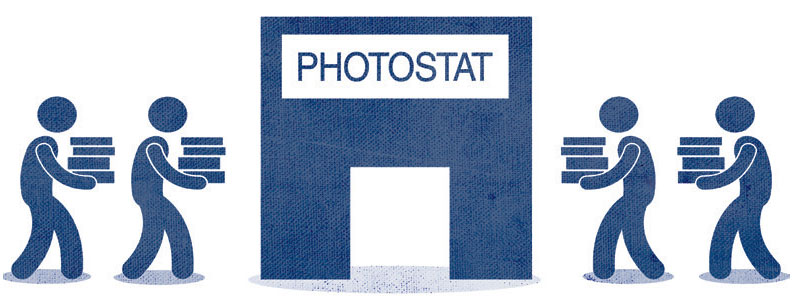

Delhi University's course packs are not a copyright violation, says the court in a wide interpretation of the law



COPYRIGHT, specially in literary works, is not an inevitable, divine, or natural right that confers on authors the absolute ownership of their creations. So decreed Justice Rajiv Sahai Endlaw of the Delhi High Court on September 16. He explained that copyright “is designed rather to stimulate activity and progress in the arts for the intellectual enrichment of the public. Copyright is intended to increase and not to impede the harvest of knowledge”.
Endlaw, using these observations made earlier by US judges, has reinforced the view that copyright is not a natural right in the judgement in the long awaited Delhi University (DU) Photocopying case. His 94-page judgement lays out clearly the lines on copyright and fair use exception for educational purposes. Readers may recall the high-profile DU course-pack case which brought students, academics and intellectual property (IP) activists to the court in defence of their right to have photocopies of bits and pieces from the prescribed textbooks as course material. At the centre of the lawsuit that caught public attention was the corner photocopying shop, The Rameshwari Photocopying Services, which in 2012 was sued by top academic publishers such as Oxford University Press and Cambridge University Press for copyright infringement. They claimed this practice was losing their authors royalties.
Some academics, however, have disputed this claim and said the publishers tended to keep a chunk of the profit themselves and passed on just a pittance to authors as royalties. They formed SPEAK (Society for the Promotion of Educational Access and Knowledge) and made it a party to the dispute. As did students, who set up ASEAK (Association of Students for Equitable Access to Knowledge), and impleaded themselves in the case.
The defendants contended that course packs come under the exceptions of fair use as laid out in India’s Copyright Act. There was no case of infringement for commercial purposes since Rameshwari was producing the course packs under an agreement with the university. They also brought in the argument that few students in India could afford the high-priced books. So even if the course packs were abolished it would not result in any additional revenues to the publishers or authors since students would not be in a position to buy the books.
In his ruling, Endlaw interpreted Section 52(1)(i) of the Copyright Act, which is at the heart of the dispute, in the widest possible terms to cover photocopying of copyrighted works for educational purposes. As such, it covered creation of course packs by DU for its students. Section 52(1)(i) exempts the reproduction of any work in the “course of instruction” and the publishers had contended that the term extended only to the use of copyrighted work in lectures and tutorials when the teacher is directly interacting with the pupils. The judge rejected this narrow interpretation.
Since the specific section states that the reproduction of a work by a “teacher/pupil in the course of instruction” would not constitute infringement, the issue before the court, according to IP experts, was whether this exemption was limited to individual teacher-pupil instruction or whether it could be extended to an entire institution and its students. Endlaw ruled that there could be no restriction given the realities of India’s education system.
He also cited the Berne Convention and TRIPS, the IP regime ordained by the World Trade Organization, to say that these pacts gave India the flexibility to include such an exception. This may be so. But even courts in developed countries such as Canada have exempted the use of course packs from cases of copyright infringement.
For Indian students, the Endlaw judgement is a huge relief. For the rest, it is reassurance that courts are interpreting IP laws in ways that reflect our society’s needs.
We are a voice to you; you have been a support to us. Together we build journalism that is independent, credible and fearless. You can further help us by making a donation. This will mean a lot for our ability to bring you news, perspectives and analysis from the ground so that we can make change together.

Comments are moderated and will be published only after the site moderator’s approval. Please use a genuine email ID and provide your name. Selected comments may also be used in the ‘Letters’ section of the Down To Earth print edition.